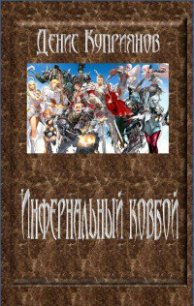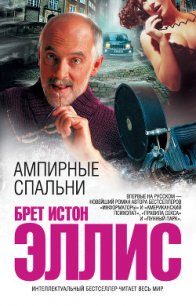Eastern Standard Tribe - Doctorow Cory (серия книг TXT) 📗
I've found a half-brick that was being used to hold down the tar paper around an exhaust-chimney. I should've used that to hold the door open, but it's way the hell the other side of the roof, and I'd been really pleased with my little pebbly doorstop. Besides, I'm starting to suspect that the doorjamb didn't fail, that it was sabotaged by some malevolently playful goon from the sanatorium. An object lesson or something.
I heft the brick. I release the brick. It falls, and falls, and falls, and hits the little blue fartmobile square on the trunk, punching a hole through the cheap aluminum lid.
And the fartmobile explodes. First there is a geyser of blue flame as the tank's puncture wound jets a stream of ignited assoline skyward, and then it blows back into the tank and boom, the fartmobile is in one billion shards, rising like a parachute in an updraft. I can feel the heat on my bare, sun-tender skin, even from this distance.
Explosions. Partial nudity. Somehow, though, I know that this isn't the climax.
8.
Linda didn't like to argue-fight: yes, argue: no. That was going to be a problem, Art knew, but when you're falling in love, you're able to rationalize all kinds of things.
The yobs who cornered them on the way out of a bloody supper of contraband, antisocial animal flesh were young, large and bristling with testosterone. They wore killsport armor with strategic transparent panels that revealed their steroid-curdled muscles, visible through the likewise transparent insets they'd had grafted in place of the skin that covered their abs and quads. There were three of them, grinning and flexing, and they boxed in Art and Linda in the tiny, shuttered entrance of a Boots Pharmacy.
"Evening, sir, evening, miss," one said.
"Hey," Art muttered and looked over the yob's shoulder, trying to spot a secam or a cop. Neither was in sight.
"I wonder if we could beg a favor of you?" another said.
"Sure," Art said.
"You're American, aren't you?" the third said.
"Canadian, actually."
"Marvelous. Bloody marvelous. I hear that Canada's a lovely place. How are you enjoying England?"
"I live here, actually. I like it a lot."
"Glad to hear that, sir. And you, Miss?"
Linda was wide-eyed, halfway behind Art. "It's fine."
"Good to hear," the first one said, grinning even more broadly. "Now, as to that favor. My friends and I, we've got a problem. We've grown bored of our wallets. They are dull and uninteresting."
"And empty," the third one interjected, with a little, stoned giggle.
"Oh yes, and empty. We thought, well, perhaps you visitors from abroad would find them suitable souvenirs of England. We thought perhaps you'd like to trade, like?"
Art smiled in spite of himself. He hadn't been mugged in London, but he'd heard of this. Ever since a pair of Manchester toughs had been acquitted based on the claim that their robbery and menacing of a Pakistani couple had been a simple cross-cultural misunderstanding, crafty British yobs had been taking off increasingly baroque scores from tourists.
Art felt the familiar buzz that meant he was about to get into an argument, and before he knew it, he was talking: "Do you really think that'd hold up in court? I think that even the dimmest judge would be able to tell that the idea of a Canadian being mistaken about trading two wallets full of cash for three empty ones was in no way an error in cross-cultural communication. Really now. If you're going to mug us-"
"Mug you, sir? Dear oh dear, who's mugging you?" the first one said.
"Well, in that case, you won't mind if we say no, right?"
"Well, it would be rather rude," the first said. "After all, we're offering you a souvenir in the spirit of transatlantic solidarity. Genuine English leather, mine is. Belonged to my grandfather."
"Let me see it," Art said.
"Beg pardon?"
"I want to see it. If we're going to trade, I should be able to examine the goods first, right?"
"All right, sir, all right, here you are."
The wallet was tattered and leather, and it was indeed made in England, as the frayed tag sewn into the billfold attested. Art turned it over in his hands, then, still smiling, emptied the card slot and started paging through the ID. "Lester?"
Lester swore under his breath. "Les, actually. Hand those over, please-they don't come with the wallet."
"They don't? But surely a real British wallet is hardly complete without real British identification. Maybe I could keep the NHS card, something to show around to Americans. They think socialized medicine is a fairy tale, you know."
"I really must insist, sir."
"Fuck it, Les," the second one said, reaching into his pocket. "This is stupid. Get the money, and let's push off."
"It's not that easy any more, is it?" the third one said. "Fellow's got your name, Les. 'Sbad."
"Well, yes, of course I do," Art said. "But so what? You three are hardly nondescript. You think it'd be hard to pick your faces out of a rogues gallery? Oh, and wait a minute! Isn't this a trade? What happened to the spirit of transatlantic solidarity?"
"Right," Les said. "Don't matter if you've got my name, 'cos we're all friends, right, sir?"
"Right!" Art said. He put the tattered wallet in his already bulging jacket pocket, making a great show of tamping it down so it wouldn't come loose. Once his hand was free, he extended it. "Art Berry. Late of Toronto. Pleased to meetcha!"
Les shook his hand. "I'm Les. These are my friends, Tony and Tom."
"Fuck!" Tom, the second one, said. "Les, you stupid cunt! Now they got our names, too!" The hand he'd put in his pocket came out, holding a tazer that sparked and hummed. "Gotta get rid of 'em now."
Art smiled, and reached very slowly into his pocket. He pulled out his comm, dislodging Les's wallet so that it fell to the street. Les, Tom and Tony stared at the glowing comm in his hand. "Could you repeat that, Tom? I don't think the 999 operator heard you clearly."
Tom stared dumbfounded at the comm, watching it as though it were a snake. The numbers "999" were clearly visible on its display, along with the position data that pinpointed its location to the meter. Les turned abruptly and began walking briskly towards the tube station. In a moment, Tony followed, leaving Tom alone, the tazer still hissing and spitting. His face contorted with frustrated anger, and he feinted with the tazer, barking a laugh when Art and Linda cringed back, then he took off at a good run after his mates.
Art clamped the comm to his head. "They've gone away," he announced, prideful. "Did you get that exchange? There were three of them and they've gone away."
From the comm came a tight, efficient voice, a male emergency operator. The speech was accented, and it took a moment to place it. Then Art remembered that the overnight emergency call-centers had been outsourced by the English government to low-cost cube-farms in Manila. "Yes, Mr. Berry." His comm had already transmitted his name, immigration status and location, creating a degree of customization more typical of fast-food delivery than governmental bureaucracies. That was bad, Art thought, professionally. GMT polezeidom was meant to be a solid wall of oatmeal-thick bureaucracy, courtesy of some crafty, anonymous PDTalist. "Please, stay at your current location. The police will be on the scene shortly. Very well done, sir."



